Rabbits love eating and have a natural inclination to chew on various items. However, for some unusual reason, you might notice that your bunny is not thrilled to try the food you prepare for them. Are they just being fussy or picky? Is your bunny turning up its nose at its lunch?
When a rabbit stops gobbling food, this is a sign of something grave. If a bunny’s loss of appetite persists for an extended period, such as 10 hours, it can become a critical and life-threatening situation for them. As rabbit owners, it’s crucial to recognize these signs and act quickly.
So, in this guide, we list down the most common reasons why bunnies will turn down food, plus the things that you can do while calling your vet.
Why do Rabbits Refuse to Eat?
There are a lot of reasons why bunnies refuse to eat. Most of the time, a handful of illnesses or diseases can lead to loss or reduced appetite in rabbits. Sometimes, you will find your bunny doing perfectly fine and recovering independently.
Nonetheless, we cannot emphasize this enough. There is no substitute for excellent and practical advice from a rabbit-savvy veterinarian. If you notice that your bunny is refusing to eat anything for ten hours, it will help if you rush them to the vet for emergency care.
Remember that when you find your bunny not eating, this is an alarming and grave circumstance. Rabbits have a sensitive digestive system.
So, loss of appetite is usually a subtle symptom of a rabbit’s sickness. Since rabbits are excellent at hiding their illnesses, pet owners should be extra vigilant.
We narrow down the common reasons your baby bunny refuses to eat to know and discover. Here’s the truth why.
Change in Diet
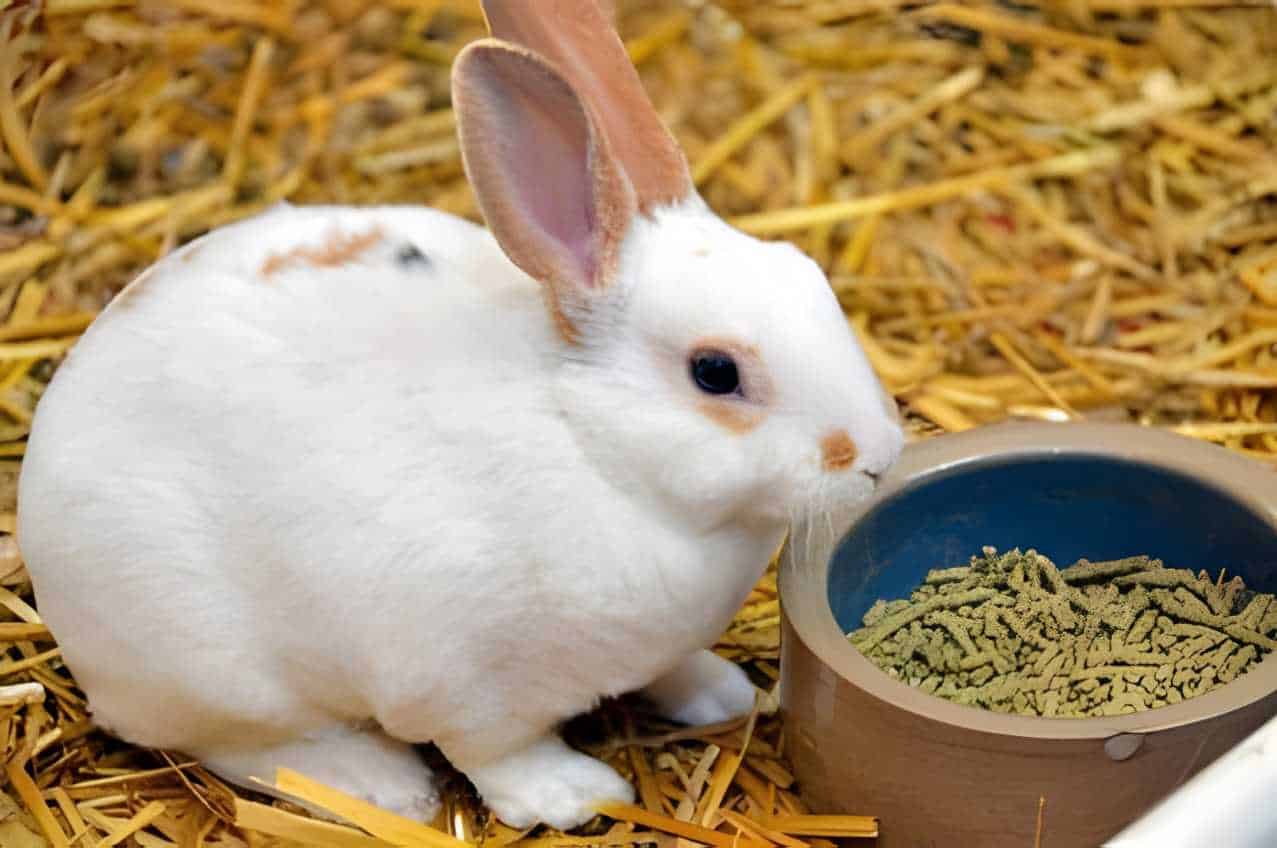
Sudden change in your bunny’s diet is one of the top-notch reasons they refuse or do not want to eat anything. For some reason, bunnies refuse to eat because they do not trust or like the new food.
Often, introducing a new diet can cause problems in your bunny’s delicate stomach. For this reason, fur parents should gradually introduce a new diet to their rabbits to prevent disruption in their digestive tract.
Dental Disease
The most common reason your bunny does not eat is that they suffer from overgrown teeth. You will find rabbits experiencing dental diseases are picky on their food.
They will try to avoid those problematic foods to gobble and swallow as much as possible. But it is a rare occurrence to see these boo bears avoiding food at all.
In certain situations, when a bunny has overgrown teeth, you will see them eating only the pellets. Then, the bunny refuses to eat the stricter hay on the other side of the coin. Another real scenario is a rabbit rating its food but quickly dropping it out of its mouth half-chewed.
Suppose a bunny’s teeth continue to overgrow without receiving any medical help. In that case, they cannot eat anything. Every time your rabbit chews, it can cause extreme pain in its jaw and potentially lead to ulcers in its cheek or tongue.
So, if this happens, it will significantly help if you swing by the nearest vet possible. The rabbit-savvy veterinarian may even prescribe a dental operation in the worst-case scenario.
Digestive Problems
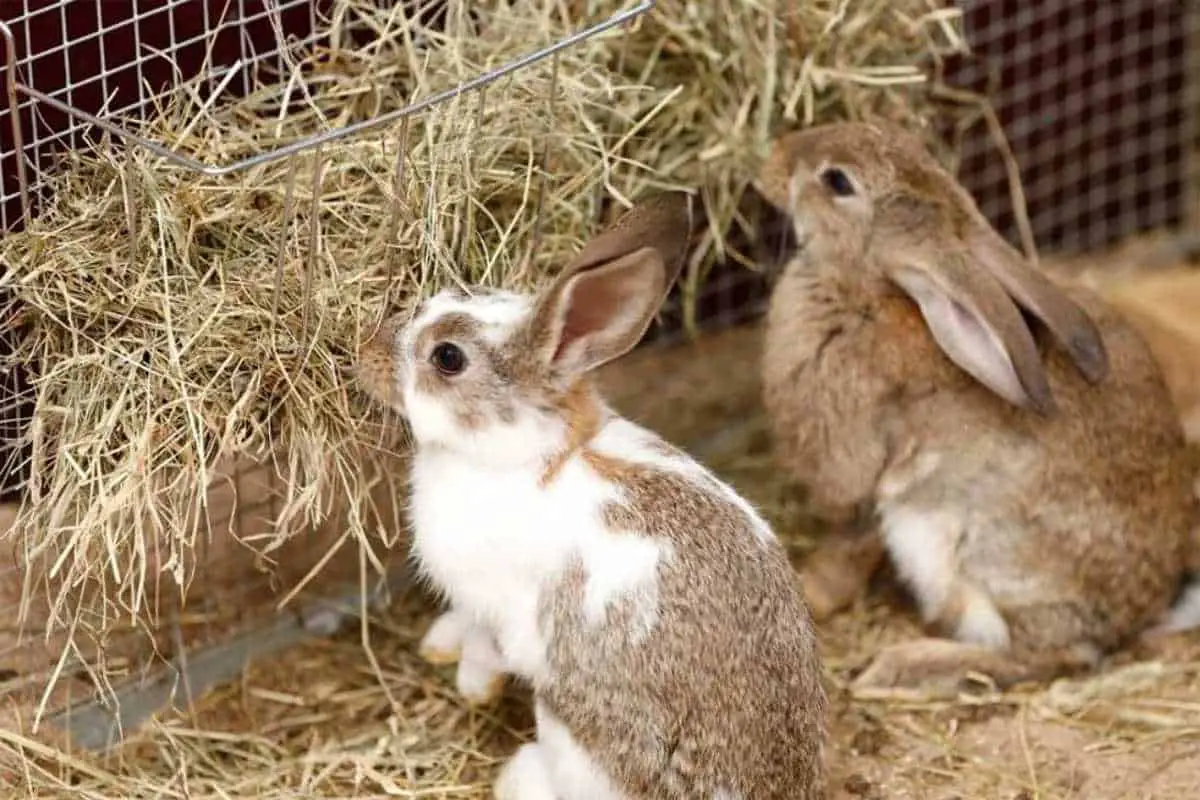
Bunnies have incredible digestive systems. They can quickly turn hay, grass, and pellets into energy. However, there are things beyond our control that could go wrong. Rabbits who have upset stomachs will become fussy about their food or stop eating altogether.
On top of that, bunnies that swallow or gobble something they should not eat, such as toxins, carpet, bedding, and other stuff, will get impaction or blockage. Since rabbits do not vomit, a jam is an alarming situation that requires urgent attention or emergency surgery.
Extreme Pain
If bunnies are going through extreme pain, this can cause them to refuse to eat. You will soon notice that if rabbits are in pain, they are timid and eventually turn down their food. You can find this overwhelming pain in your rabbit anywhere.
These forms of pain can be physical cuts and scratches, joint aches, post-surgical pains, and underlying diseases. If this pain is prolonged for extended periods, it can lead to a condition in rabbits known as GI Stasis. Rabbit-savvy veterinarians can solve certain conditions resulting in pain in your bunnies, like arthritis.
GI Stasis
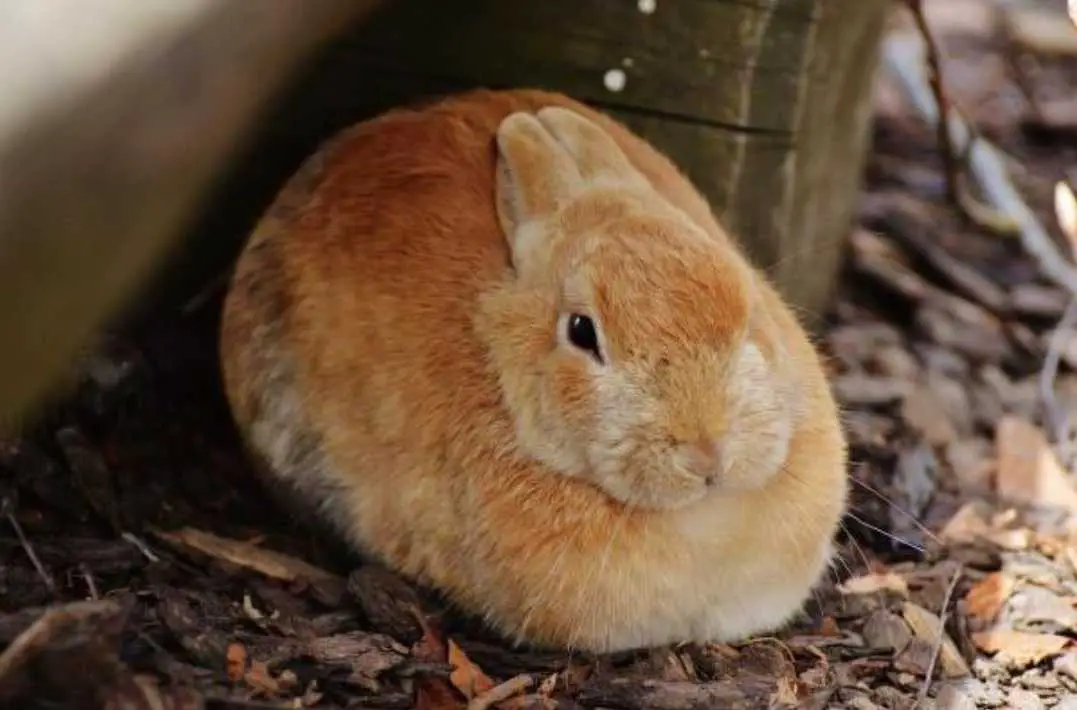
Another reason your bunny turns down food is that they have GI stasis. GI stasis is a health condition where the bunny’s digestive system slows down and stops functioning.
Sometimes, overwhelming stress and pain cause disruptions in your bunny’s digestion. Because of this, your bunny requires the vet’s assistant to treat GI stasis and other underlying conditions.
Gut stasis will bring extreme pain to your bunny. So, they require immediate pain relief to be able to eat again. Gut stimulants and fluids can also be prescribed by your rabbit’s doctor.
Overwhelming Stress
Like us humans, stress can disturb the appetite of rabbits. Also, stress is why you can rarely see a bunny eating while they are in a car. Overwhelming stress is the most typical reason why rabbits have a reduced appetite.
Loud noises and unfamiliar or strong smells are common stress triggers for rabbits. Eventually, at this time, you will find that their feces are smaller. In addition, bunnies will feel stressed with simple things like fireworks, changes in their routine, and new pet members in the family.
Moreover, rabbits displaying signs of extreme stress or behavioral changes may also refuse to eat for extended periods. So, like a rabbit owner, it is your responsibility to create an environment where your bunny can feel safe, comfortable, satisfied, and happy.
Respiratory & Urine Infections
Usually, your bunny may feel sick and unwell when they have respiratory infections. Over time, this condition may lead to a decrease in appetite. Further, urine infections are extremely painful to the point that they will cause your bunny to eat less and turn down food.
How Will You Know if Your Rabbit is not Eating?
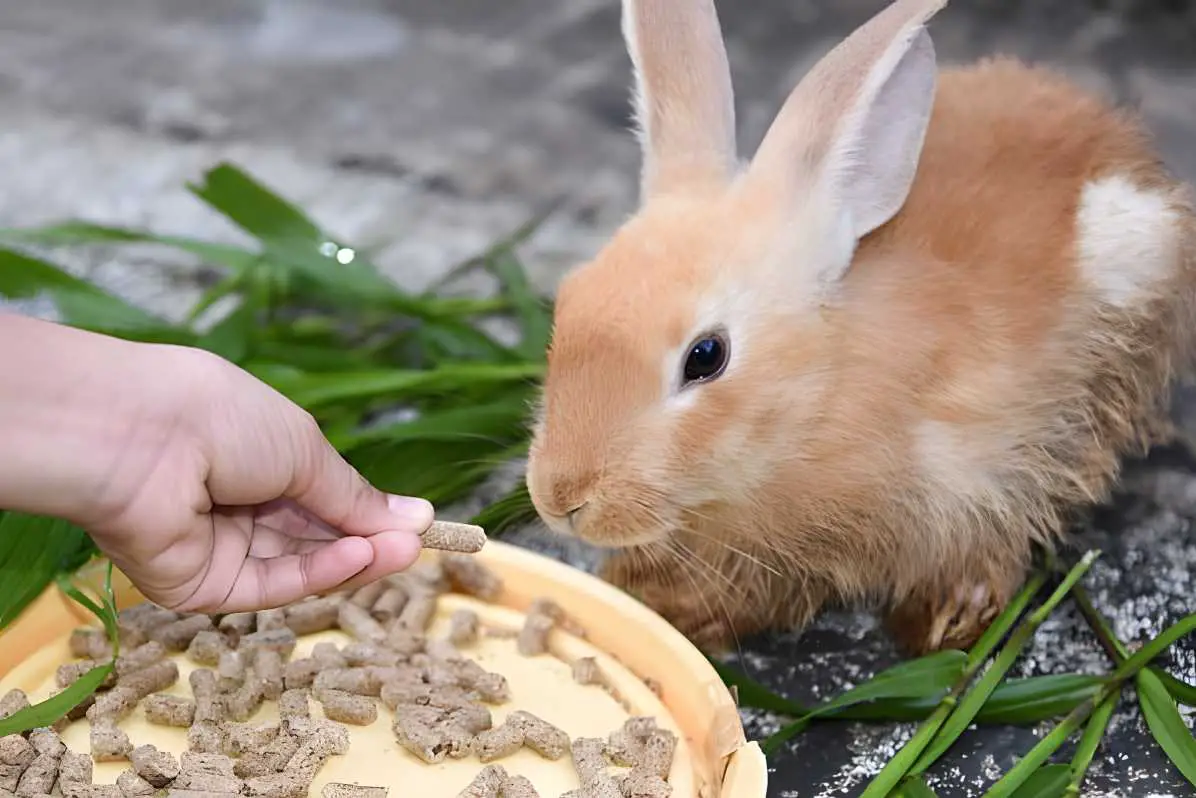
Suppose you notice that your bunny’s food is often left in the rack or bowl for apparent reasons. In that case, this scenario suggests that something is going on in your rabbit’s appetite.
Nonetheless, it is worth remembering that this is not the only way to monitor your bunny’s appetite. It is always best to act quickly than to regret it later on.
An excellent way to keep an eye on your bunny’s appetite is by observing its poo. Experts show that rabbits release droppings at least 200-300 times per day. Therefore, rabbit owners must monitor their bunny’s defecation schedule.
The first sign that something unusual happens in your bunny is a decline in their feces. Another is when you observe a bit of change in the consistency of their poos. Aside from that, here are the other common symptoms of rabbits’ loss of appetite.
- There is an unusual change in the rabbit’s eating habits.
- Urinating and pooping schedules abruptly changed.
- The bunny is lazy and has lower energy levels.
- You will find them always laying down or sitting in a hunched position.
- They always find reasons to hide and escape.
- They have a snotty nose and lack balance.
- Bunnies are violent and aggressive.
How Long Can a Rabbit Go Without Eating Food?
Rabbits cannot survive a day without eating food. Rabbit owners should never let their bunnies go on for twelve hours without eating food. Once this happens, this could eventually lead to a pH change in their gastrointestinal tract. Later on, this abrupt change can cause painful gas.
What to do When a Rabbit Refuses to Eat?
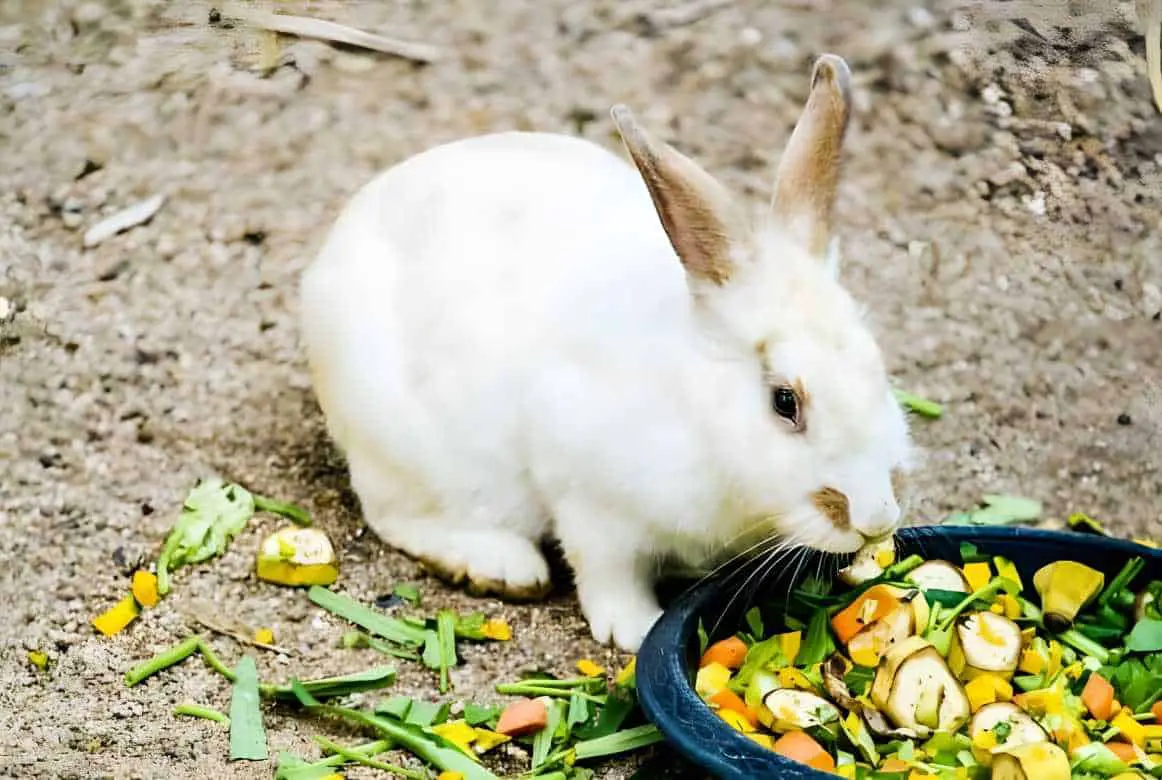
The great news is that there are home remedies available that you can try after a few hours that you observe that your bunny is no longer eating. Here we list some effective and practical remedies you can try to help your bunny.
- At the onset, you can combine veggie baby foods with a syringe. With this, you need to feed your bunnies with force. Doing this can stimulate your bunny’s gastrointestinal tract. If your rabbit does not eat for prolonged periods, gas will fill its tummy.
- You can then induce them to exercise after forcing your bunny to swallow and gobble food. Massage the bunnies’ bellies for gut motility.
- Please provide them with lots of water to prevent dehydration. Other options include electrolyte solution and syringe water to help them defecate.
- It will help if you avoid feeding your bunnies pellets during this time. Instead, provide them greens with higher water components like celery and lettuce. Plus, you will never go wrong with Timothy Hay.
- If you follow all of these, you still notice that there is no improvement in your rabbit’s condition. Call your vet immediately.
When do you Need to Contact Your Vet?
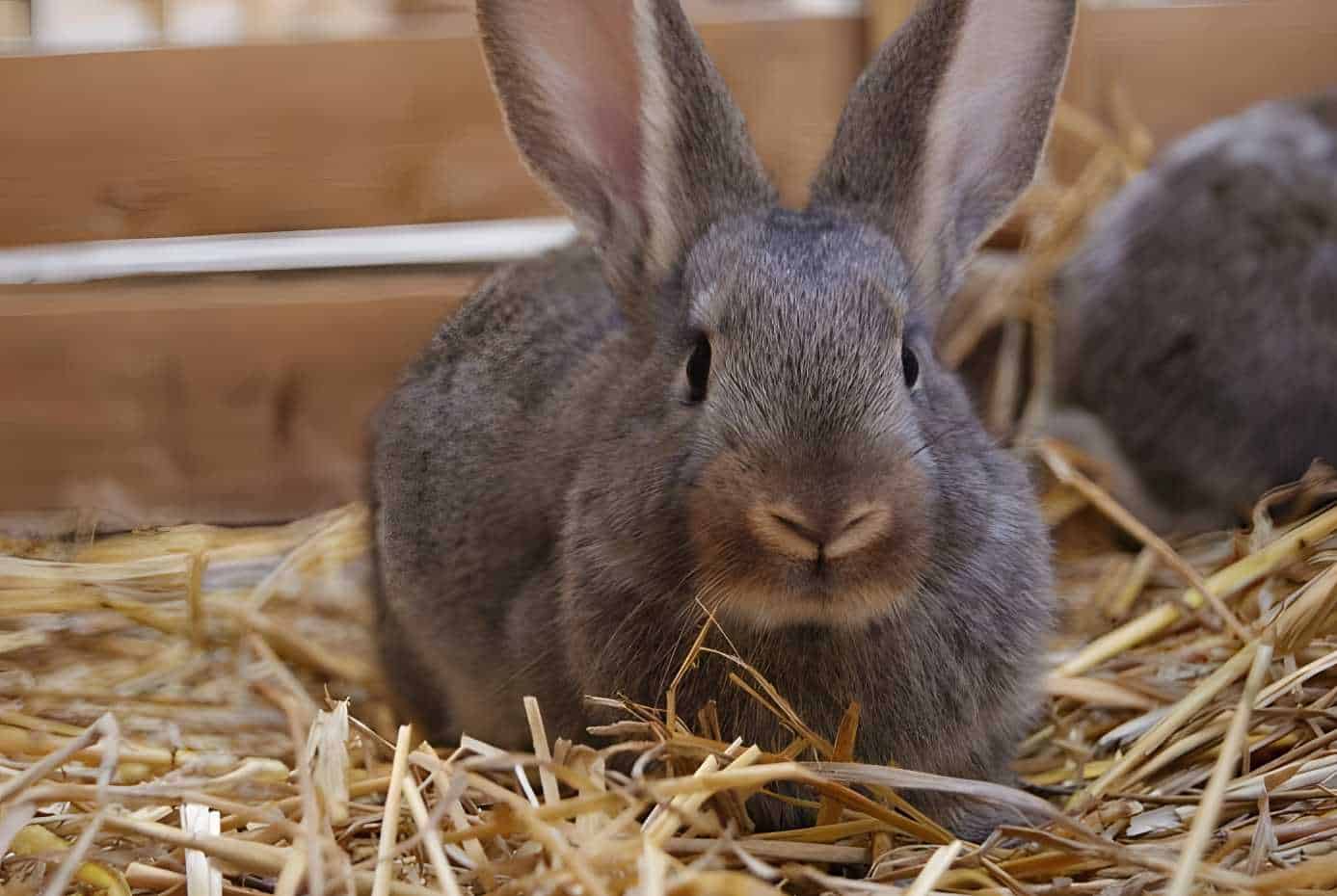
Suppose your bunny refuses to eat for even just one day. Sorry to burst your bubble. In that situation, your rabbit will be placed in a life-threatening condition. The practical way to go about this is to call your vet while doing home remedies.
Diagnosis
Once you bring your rabbit to the doctor, it will then find a way to figure out why your bunny has a loss of appetite. Diagnosis is not an easy job.
The vet may recommend that your bunny goes through a physical exam. Other ways include blood tests, dental examination, fecal tests, radiology, X-rays, and other tests.
How to Avoid the Loss of Appetite in Rabbits?
There are simple and practical tips to give your bunny a healthy appetite as pet parents. Always ensure that you offer this boo bear grass hays, leafy green veggies, and freshwater 24/7. On top of that, provide your rabbit with an atmosphere free from stressors and fluctuating temperatures.
Summary
Loss of appetite for rabbits calls for a quick solution. Bunnies cannot starve even for a day. To take good care of these baby boo bears, fur parents need to do something.
Since rabbits are adept at hiding signs of illness, it is crucial to closely monitor their eating habits. That way, you can provide your precious bunny with a long and satisfying life.